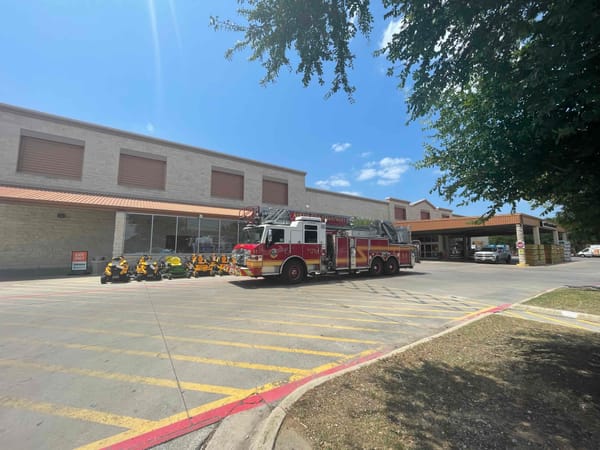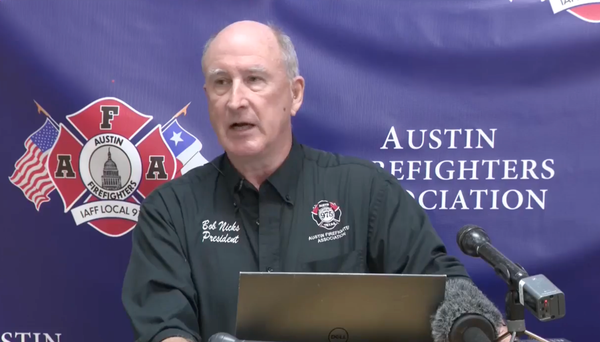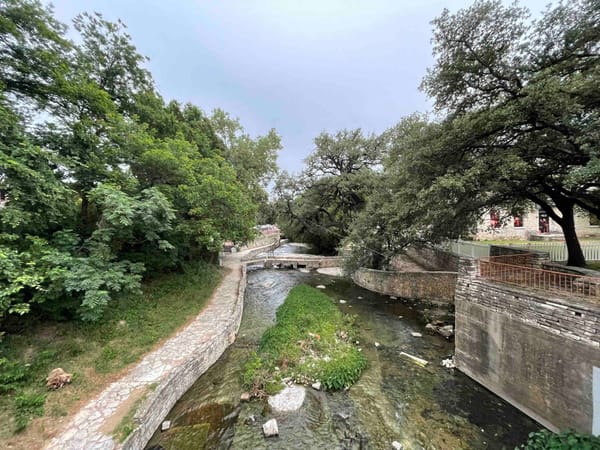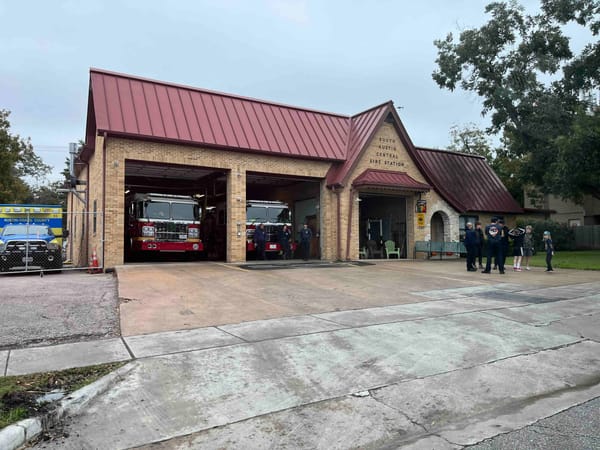The end of the week, the end of an era
How does City Hall feel about Jesus Garza?
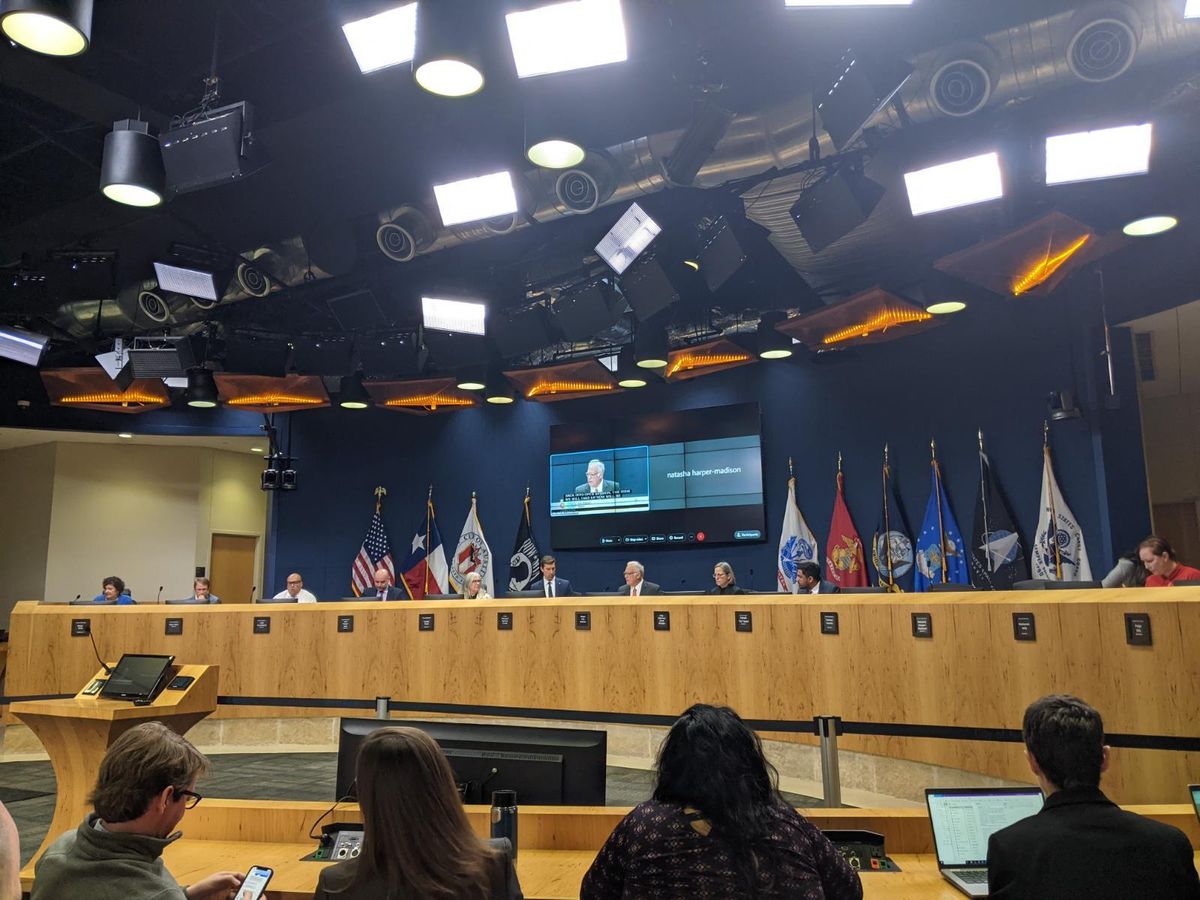
I'm just going to do a bunch of quick hits today. Longer articles will continue to be an important part of the newsletter, but I know from talking to many of you that you don't need that everyday. Plus, if I set the expectation that I'll do a long article each day, I don't allow myself enough time to do the reporting necessary for quality investigative work.
If you are lucky enough to have President's Day off, enjoy the long weekend. If I had my druthers I would take every French holiday off, but I'll settle for every city holiday. I've got some topical reading for the weekend too: Reelecting Lincoln: The Battle for the 1864 Presidency by John C. Waugh, which I picked up at the Central Library the other day. I don't think it's well-known, but I've found it interesting.
Today's newsletter is fully accessibly to paid and unpaid subscribers. If you are not a paying subscriber, please consider becoming one today! I depend entirely on subscriptions to make a living.
Cronk talks, sort of: In a nine-and-a-half minute interview with Tony Plohetski of KUVE/Statesman (you may have to scroll down), the ousted city manager insists he has no hard feelings about his hiring, and rejects the idea that he's a scapegoat for the ice storm. But he doesn't concede any mistakes. It's what you'd expect from a guy applying for a future job. Oddly, Plohetski didn't ask him about the police contract.
Asked what the city's biggest challenges are, he says it will be tough for us to deal with the disruption caused by two lengthy construction projects: the I-35 expansion and Project Connect. (He characterizes both as "important, future-thinking, future-looking ways in which we're going to build for the next generation of Austin." FWIW, I'd describe the I-35 expansion as "useless and backward-looking.")
That's such a strange response from the man who has been at the helm of the city of Austin for five years. The city is facing a state-engineered revenue crisis that is already causing major staffing shortages. Half of our 911 call taker positions are vacant. You'd think the former CEO of City of Austin Inc. would view that as a bigger challenge than whatever inconvenience is caused by infrastructure projects.
Was Cronk a goner even before the police contract showdown? Cronk foisting the four-year police contract on City Council may hardened some Council members' resolve to fire him, but most believe he would have gotten the boot just due to the ice storm.
A theory of Cronk's action on the police contract: It's possible Cronk was simply proposing a contract that he viewed as responsible, but Chronicle reporter Austin Sanders highlights a theory for why Cronk rushed to finalize a four-year contract on the eve of his anticipated termination:
"Speculation among City Hall insiders, including some CMs, has been that Cronk has used the police contract issue to position himself for a new job – whether that be as leader of a different, perhaps more conservative city, or in something outside of government. He can tell future employers that he was fired for standing up for law enforcement in the face of a liberal city council that was working against the interests of public safety. It would be much better for Cronk to say that is why he got fired, rather than over a mounting number of infrastructure and service failures that came to a head in February 2023."
How do people feel about Jesus Garza as city manager? In my conversations with Council members and their aides, everybody seems to say the same thing: there weren't a lot of good options for an interim city manager who could quickly take over. There wasn't much interest in elevating one of the city's other top executives. And few are yet voicing any concerns about Garza and the mayor's close ties, including Garza's role in the PAC that spent nearly $1 million on behalf of Watson.
Now of course speculation turns to who will be the permanent replacement, and how long it will take to get one. It took over a year last time.
Celia Israel chimes in:
This is a huge red flag; it will take a full year or more to get the next CM in place. Politics over policy is my concern here. https://t.co/9qzzwT4d7g
— Celia Israel (@CeliaIsrael) February 15, 2023
The Austin Chamber ramps up advocacy for I-35 expansion: Opportunity Austin, an arm of the Chamber of Commerce, is sending out texts and emails encouraging members to submit comments in support of TxDOT's proposed expansion. Despite a mountain of research showing that highway expansions don't reduce congestion (see: Katy Freeway) the Chamber argues that this expansion will. "If we don't act now we will be stuck with the same traffic issues we have now," says a recent text that was shared with me.
A couple useful Wikipedia articles on why highway expansion doesn't relieve congestion:
Lewis-Mogridge position
Induced demand
There is actually an honest argument for highway expansion, but it's one that is rarely made to the public. The argument is that, even if expanding the highway doesn't change the experience for the typical commuter, the bigger highway will ultimately move more cars than its predecessor. So the trip between Ben White & U.S. 290 will still take 40 minutes, but now more people will be making that trip. And if we're not willing to build enough apartments in the urban core or invest in alternatives to driving, the only other way to provide Austin's downtown employers with access to labor is to widen the highway that connects them to the sprawl housing on the outskirts that their low and mid-level employees can afford.
Learning from Houston on housing: An interesting look at Houston's housing situation from urbanist writer Benjamin Schneider. Not only does Houston lack zoning, but in 1998 it reduced its minimum lot size to 1,400 sq ft, less than a quarter of Austin's (5,750 sq ft), prompting a big increase in a type of home that is illegal in most of Austin: townhouses.
Today, these townhouses are ubiquitous inside the 610 Loop that marks the central part of the city. A detailed study from the Kinder Institute at Rice University explored the impacts of this development pattern. Between 2005 and 2018, the Inner Loop saw 75,000 new housing units completed, nearly half of which were townhouse units. That’s more housing than San Francisco and Oakland produced, combined, over the same period. The Inner Loop also outperformed the rest of the Houston region in housing production. The area comprises 5% of the total land area of Harris County but accounted for 19% of new housing built between 2005 and 2018.
So despite its well-deserved reputation as a sprawling, auto-centric dystopia, the capital of the U.S. oil industry has likely grown much more sustainably in the past 20 years than Austin. While Houston's growth has centered in its urban core, giving more people a chance to get around on foot, bike or transit, almost all of Austin's growth has come on its car-dependent outskirts.
But at least we're sticking it to the developers. Actually, we're not. They make just as much money here as they do in Houston, but they do it building the expensive, car-centric housing mandated by our code.


